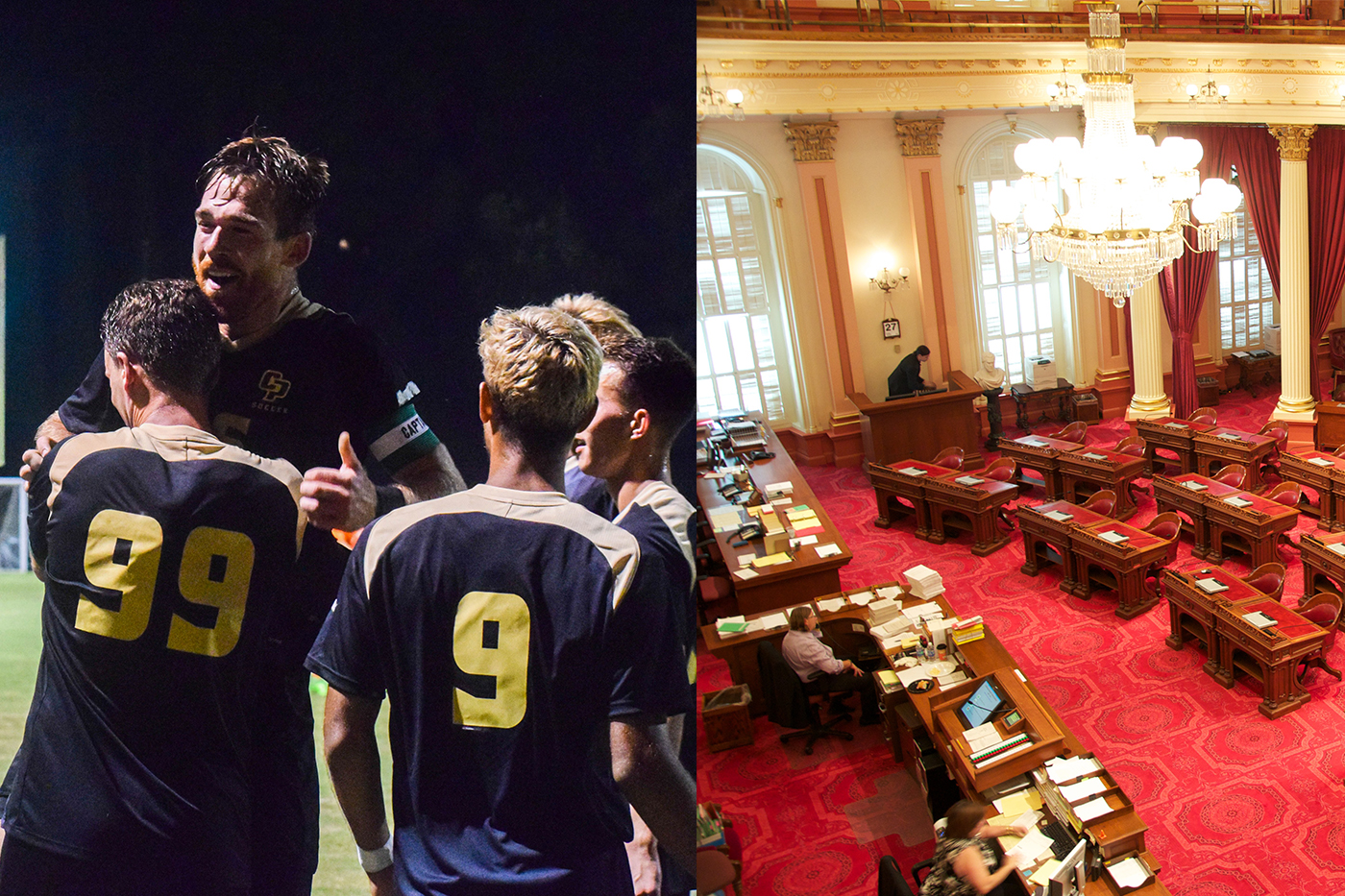A bill allowing California student-athletes to be compensated for the use of their image and likeness moved one step closer to the Governor’s desk after it passed an Assembly vote on Wednesday, Sept. 9.
SB-206, previously dubbed the “Fair Pay to Play Act,” would prevent both public and private four-year institutions from blocking the “use of the student’s name, image, or likeness or obtaining professional representation” for compensation as a student-athlete. The bill also prevents any intercollegiate athletics association, conference, or organization from blocking their usage as well.
The bill passed a vote in the state Assembly with a 73-0 majority, with six assembly members abstaining. The bill passed the state Senate on May 22 by a 31-5 majority, with two senators abstaining. Gov. Gavin Newsom has 12 days from the bill’s passing to either sign the bill into law, approve without signing or veto the bill.
Professional athletes have tweeted out their support for the bill, including LeBron James of the Los Angeles Lakers, who called SB 206 a “GAME CHANGER.” James’ company, SpringHill Entertainment, produced “Student Athlete” for HBO, a documentary film on how student-athletes are affected by intercollegiate athletic governing bodies.
Everyone is California- call your politicians and tell them to support SB 206! This law is a GAME CHANGER. College athletes can responsibly get paid for what they do and the billions they create.
— LeBron James (@KingJames) September 5, 2019
Presidential candidate and Vermont Sen. Bernie Sanders echoed James’ support for the bill in a retweet. “College athletes are workers,” Sanders tweeted. “Pay them.”
College athletes are workers. Pay them. https://t.co/PNEefTbS2O
— Bernie Sanders (@BernieSanders) September 6, 2019
Before the bill reached the Assembly floor, NCAA President Mark Emmert wrote a letter to two State Assembly committee chairs voicing his opposition to the bill. Parts of the letter were published by USA Today on June 24 and indicated consequences for the state if the bill passed.
In his letter, Emmert recognized the issues surrounding the debate regarding student-athlete compensation and the effort undertaken to write the bill.
“Nonetheless, when contrasted with current NCAA rules, as drafted the bill threatens to alter materially the principles of intercollegiate athletics and create local differences that would make it impossible to host fair national championships,” Emmert wrote in his letter. “As a result, it likely would have a negative impact on the exact student-athletes it intends to assist.”
The NCAA did not return multiple email requests for this story.
Assembly member Jordan Cunningham (R-San Luis Obispo), one of the bill’s 13 co-authors in the state Assembly, said that no organization, “not even the NCAA,” should stop student-athletes from profiting off their own image.
“Most college athletes don’t go pro and should be allowed to capitalize on their opportunities during the height of their athletic career,” Cunningham wrote in an email to Mustang News. “Rather than threatening our hard-working student athletes and the colleges they attend, the NCAA should change this outdated policy nationwide.”
Cal Poly Athletics, however, viewed the potential postseason ban on schools if the bill passed as moot unless student-athletes received image compensations.
“Just because the state of California permissively allows it’s citizens to do something doesn’t mean they are required to do it,” Athletics Director Don Oberhelman wrote in an email to Mustang News.
Oberhelman added that the bill would still go against NCAA regulations if passed and “… in this case NCAA universities (and student-athletes) located in California would still be required to follow NCAA rules related to amateurism or run the risk of compromising their eligibility.”
Other states, like North Carolina, have introduced bills similar to the ones proposed by California.
If signed into law, the bill would go into effect January 1, 2023.

